Leading AI Tools for Business
As stated in my previous post, small business owners can be more efficient, become more productive, saving time on administrative tasks with leading AI tools for business, especially accounting apps. The most important aspect of using AI apps is to help use your time more strategically to grow your business.

Introduction
Running a small business or start-up can leave an owner with no time to do the administrative tasks necessary for the company’s success. Today, we have many app options to improve the efficiency of those tasks, particularly in the accounting department, where it is imperative to be accurate and remain compliant with regulatory entities such as the IRS and increase productivity to allow a business owner time to do other things. Some of those apps include customer relations management (CRM) systems, payment processing systems, Scheduling, and automated invoicing.
In my previous post, I briefly explained what an ERP system is and its benefits for a business. Using all-inclusive ERP systems can be expensive for small businesses. However, many management software solutions are offered free of charge or with small monthly fees that can help a business owner translate that time into effective strategies to grow a business and a positive return on investment on those apps.
The main reason for having leading AI tools for a business is that they help integrate, manage, and control different business processes and functionalities to seek solutions that can grow a company. You may argue that those administrative tasks can be given to employees, and you are absolutely right. When you or your employees master using AI-aided apps, they can also use their extra time on tasks to help you grow the business. The goal is to use as much help to make your job more efficient and productive as possible to focus on strategies to make your business more profitable.
In my previous post, I covered the top-rated apps in social media management, cyber security, SEO, web traffic analysis, customer chat apps, cloud storage, documentation, and other office support apps such as Office 365 and Google Workspace. I will focus this post on accounting AI-aided app tasks that are just as important.
Leading AI Tools for Business in Accounting
Accounting apps simplify financial management tasks for businesses. With high-security features, they facilitate secure connections between businesses and customers, ensuring seamless transactions and customer satisfaction. AI apps can offer features like invoicing, expense tracking, and reporting. Invoicing applications streamline billing processes for businesses, providing efficiency and accuracy. Processing payments is only the area of accounts payable in the category of expenditures and purchasing. Many apps offer diverse payment options and full integrations for accounting practices in various industries, including eCommerce, in-store purchases, and off-site sales like special events, festivals, or community markets. The free options in many of these apps that provide essential features without cost cater to small enterprises with limited budgets. Each solution example below may have additional features beyond what is listed here, so I recommend exploring their official websites for more detailed information.
1. QuickBooks Online
QuickBooks is a widely used accounting software with comprehensive features for small and medium-sized businesses. It can track income, send invoices, and more through your website, including accepting payments. QuickBooks fully integrates accounting and payment processing merchant activities to support your business operations. Solutions include QuickBooks accounting software that can be run on Windows or Mac, producing reports, calculating, and managing taxes. It’s highly scalable when your business grows. QuickBooks offers supplies and prints checks, live bookkeeping, payroll, contractor payments, Point of Sale, and time tracking.
2. Xero
QuickBooks is a widely used accounting software with comprehensive features for small and medium-sized businesses. It can track income, send invoices, and more through your website, including accepting payments. QuickBooks fully integrates accounting and payment processing merchant activities to support your business operations. Solutions include QuickBooks accounting software that can be run on Windows or Mac, producing reports, calculating, and managing taxes. It’s highly scalable when your business grows. QuickBooks offers supplies and prints checks, live bookkeeping, payroll, contractor payments, Point of Sale, and time tracking.
3. FreshBooks
FreshBooks provides invoicing and accounting solutions for freelancers and small businesses. FreshBooks creates professional invoices, tracks expenses, keeps tabs on your business expenses, and can track time to monitor billable hours for accurate invoicing. FreshBooks can be relied on for client management solutions, managing clients’ information, and communication. Some of the advanced features include project management, estimates, proposals, and recurring invoices for subscription services.
4. Wave
Wave is a great solution for entrepreneurs, start-ups, and small businesses. It offers invoicing, payments, and banking, automatically tracking within the app. A great feature is that estimates can be turned into invoices once approved. You can accept online payments, sync with invoices and accounting transactions automatically, monitor payment statuses, and receive notifications. With a subscription, accounting features include receipt scanning that helps keep track of expenses and for tax season, ideal for small businesses and entrepreneurs.
5. Stripe
Stripe offers payment processing, facilitating online payments for websites. It is developer-friendly, meaning that it can easily integrate payments into websites and apps. It’s customizable, offering flexibility for the business. It can be set up to offer subscription sales and handle recurring payments. Its security is highly compliant, ensuring secure transactions for customers.
6. Square
Square provides simple, reliable card processing and point-of-sale solutions at the counter or on the go. Square can create and send invoices and help manage inventory. Its reporting capabilities provide analytic data and insights into sales and customer behavior. Integrating with accounting software that provides excellent tracking resources. Allows mobile applications such as short message services (SMS) texts and sharing links for payments.

7. Zoho Invoice
This app simplifies invoicing and expense tracking. It’s integrated with third-party online payment gateways such as Stripe, PayPal, and Square to accept payments (other gateways are available). and can also set up payment reminders for clients. Zoho Invoice offers real-time tracking to monitor payment status. It is a versatile app that integrates with other Zoho apps and services to offer a full service, including accepting online payments and inventory management to restock products.
8. Invoice Ninja
Invoice Ninja is a robust solution with customizable invoices and client portals. It offers free invoicing, which is suitable for small and start-up businesses. Its payment processing features accept payments online, making it convenient to integrate with your website. It can keep track of your inventory, offering Inventory Management. It offers time-tracking features to track your services per hour to record billable hours. Invoice Ninja also offers project management tools to support large projects for your customers.
9. Hiveage
Hiveage is a payment gateway that integrates with various payment platforms such as PayPal, Stripe, and Square . It allows multiple payment options and is user-friendly for billing and invoicing. Customers have several choices to make payments securely. Hiveage creates professional customized invoices that reflect your brand. It can also be set up for recurring billing and supports multiple currencies, which is ideal for small businesses reaching global customers.
10. HoneyBook
HoneyBook offers bookkeeping and invoicing services with readily available temples. Collects credit card payments or online gateway payment systems and tracks revenue and sales. It can automate and complete repetitive tasks to free up your time. Other templates offer contracts, proposals, and contact forms. Services such as scheduling tasks, workflows, automation, and third-party integrations are among the favorites of small business owners. Overall features include an easy-to-use platform, sales force automation for CRM solutions, marketing automation, customer support, mobile and social integrations, reporting and analytics, notifications, branding and customization, and generative AI for text and image-to-text (G2, 2024).
11. PayPal Business
PayPal Business streamlines online payments and invoicing globally. Offers instant payments, split payments, buy-now-pay-later, and manual payment entry options. Invoicing, loyalty management, customer portal, customizable website integration, and Point of Sale systems. Stripe offers customizable payment solutions for online businesses. Other popular services include WooCommerce, Lightspeed, Toast (for restaurants), and Zapier.
In Conclusion, the most important thing to remember about the leading AI tools for business is that they will reduce the time spent on the important administrative tasks of a business, such as payroll, taxes, inventory, etc. This allows business owners time to strategize how to make the business more profitable, and what their next steps will be. There are today innumerable artificial intelligence applications (AI apps) that are daily being used by everyone from businesses to kindergarten kids, our job is to understand how they will simplify our job, whatever that is.
Sources:
G2. (n.d.). HoneyBook Features. G2, Accounting & Finance Software, Invoice Management Software.



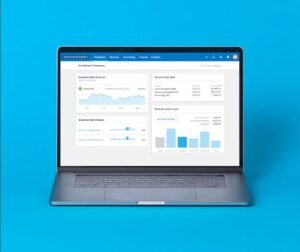




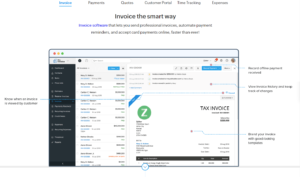
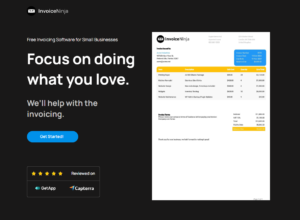
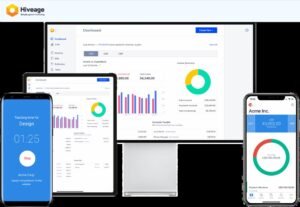

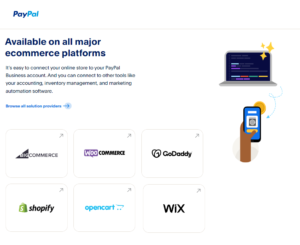
Recent Comments